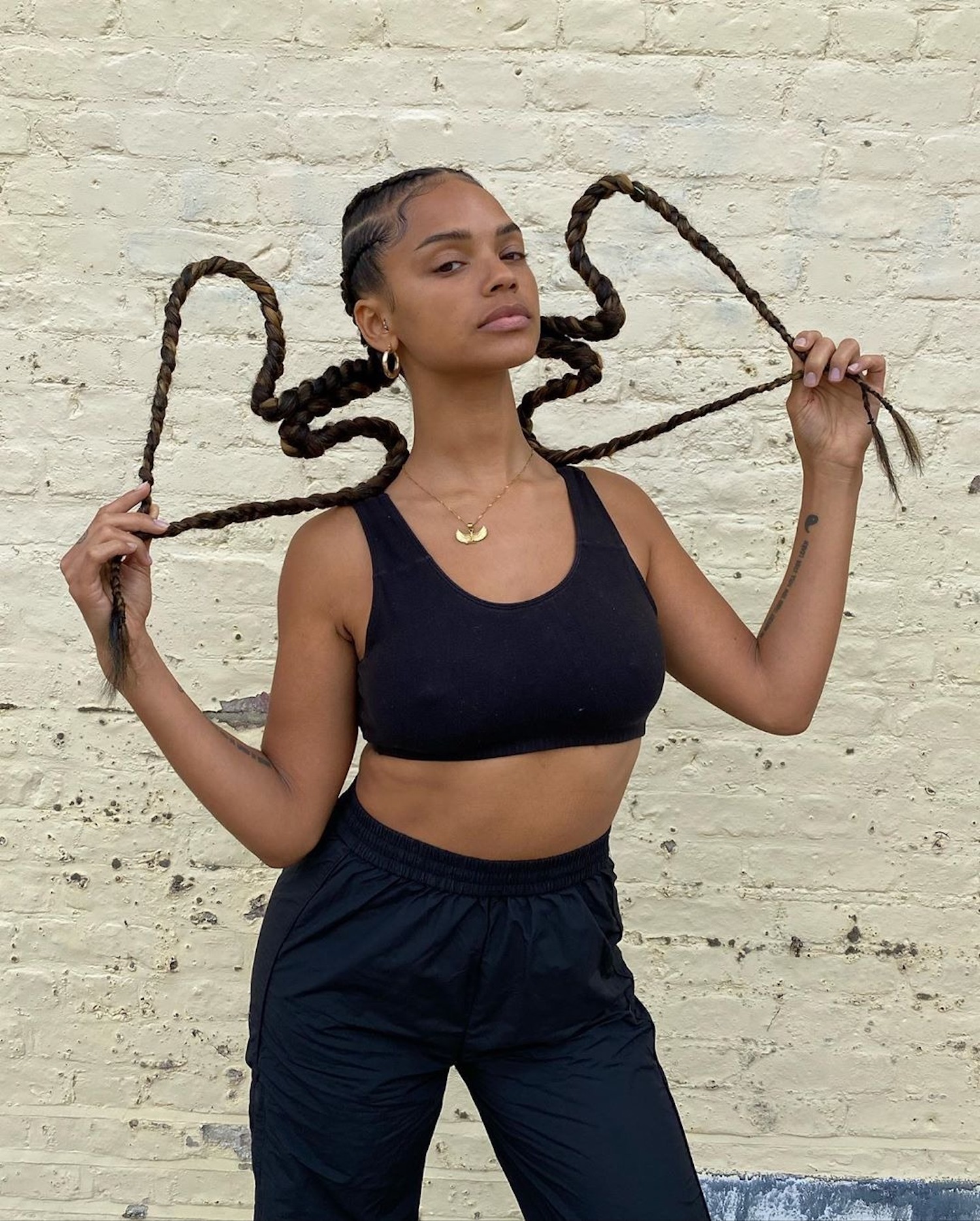Necessary a decision for national public health as it was, there’s no sugar-coating the fact that lockdown has cast a shadow of economic precarity over once-stable sectors of the economy. Hair and beauty was one of the hardest-hit industries, with salon owners left with little choice but to lock up shop for months on end given the physical nature of their jobs. While we’re currently seeing a boom in business — with people across the country rushing to their nearest hairdresser to get their tresses trimmed since restrictions lifted — whether salons will be able to recoup their losses in the long-term remains to be seen.
The thing with such large scale episodes of economic hardship is that they have a nasty habit of exacerbating pre-existing structural and socioeconomic disparities. In the lucrative world of hair and beauty — an industry worth an estimated £6.6bn to the UK economy — this translates to Black-owned salons suffering the effects of the pandemic hardest.
That’s why Taiba Akhuetie, founder and CEO of Keash, the London pop-up braiding salon cum-creative agency, has launched a fundraising campaign aimed at financially supporting four Black-owned hair salons, located in the London neighbourhoods of Seven Sisters, Dalston, Tooting and Notting Hill. “They’ve been closed for three months now, and I wanted to help them, to give them a chance to be a bit more on top of their game with things,” she says.
As much as her campaign seeks to remedy the financial shortfalls of the past few months, the issues it touches upon long predate the unwelcome arrival of the coronavirus. While recent decades have seen the emergence of a high-end Black hairdressing market, many of London’s Black-owned hair salons cater to communities where disposable incomes are typically lower than average, resulting in low prices that their client base can afford. When you factor in time and the labour-intensive nature of many popular styles — a full head of box braids can take between four and eight hours and only set you back £80 to £100 — the result is a situation where salon-owners find it tough to break even, even if they’re well-patronised.
“They all get really busy, but they never make enough money — none of them seem to be comfortable at all,” says Taiba, who has frequented various salons around the capital over the years. She also notes the number of salons offering similar styles and treatments as a further factor stoking the racial wealth gap to which workers in the Black hair industry fall victim. “I can understand why they undercharge, as they’re catering to a community of people from poorer backgrounds,” she says. “I don’t think they should be doing that, but they’re all so worried about the competition, or a customer leaving — especially when people are having to wait such a long time to get their hair done.”
The branding and positioning of most of London’s Black-owned hair salons are yet further disadvantaging factors. Sure, there’s Junior Green in Kensington, Paul Edmonds in Knightsbridge and Charlotte Mensah on Portobello Road — each a proud example of a Black hairdresser earning the recognition and financial reward their work is worth. But for each of them, there are tens of salons that are “lumped together and segregated,” says Taiba, consigned to the thoroughfares of the historically lower-income neighbourhoods in Zone 2 and beyond, that London’s largest Black communities call home.
As is the unfortunate case across the city, these neighbourhoods are often the victims of violent gentrification. Rarely the owners of the premises on which they’re based, Black salons are often the first to disappear when their stretches of London real estate catch developers’ eyes. Taiba cites south London’s Peckham, a longstanding hub of The UK’s Nigerian community, as a case in point. There, plans are underway to relocate salons based around Peckham Rye station and along Rye Lane to a site away from the busy shopping street, robbing them of their passing trade. “They obviously get most of their clients because they’re in the main part of Peckham, but people don’t want to see them there,” she says. “They’re presenting it as a good thing, but why are they moving them in the first place? It’s because they want to change it and have it look more bougie.”
Not only do such disappearances affect the landscape of the street — and with it our ability to celebrate its sense of ‘authenticity’ and ‘local colour’ — they have a detrimental impact on the communities they serve. Black hair salons are often micro-hubs for the community — they’re places to visit for a laugh and a catch up as much as they are places to get a silk press. “You get all of these older ladies, for example, who don’t have that many people around them any more, and sometimes they’ll just go there to have a chat with someone who understands them — people they can talk to and feel comfortable around,” Taiba says. “There are a lot of people like that among the older Black community. That’s often where they’ll socialise, where they feel comfortable.”
“They’re also comfortable places for people like me to get my hair done. I could never just walk into a European salon. Firstly, they probably wouldn’t know how to cut my hair, and even if they did, I don’t know if I’d feel very comfortable with it,” she continues. By failing to protect and proactively support the city’s Black salons, she argues, we’re all contributing to “taking away a huge part of what makes London great. All these cultures have come here and settled, and this is what they made a living out of. It’s a shame to make London into the same kind of place, where you just see the same thing everywhere, with no other cultures and experiences.”
Donate to the Keash Salon Hardship Fund here


